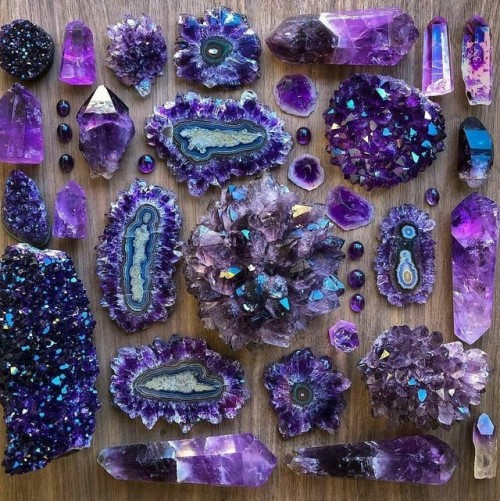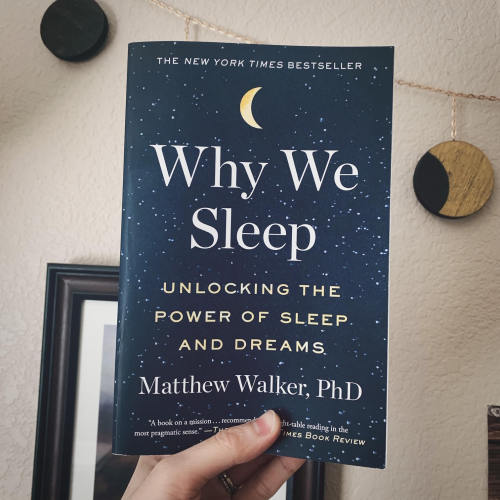
795 posts
Eldrichlibrarian - Devotional Blog To Hermaes Mora

-
 westerneyez liked this · 2 years ago
westerneyez liked this · 2 years ago -
 existenceexhaustsme reblogged this · 2 years ago
existenceexhaustsme reblogged this · 2 years ago -
 holymoonlightblade liked this · 2 years ago
holymoonlightblade liked this · 2 years ago -
 electricbungalows reblogged this · 2 years ago
electricbungalows reblogged this · 2 years ago -
 distortedr3ams reblogged this · 3 years ago
distortedr3ams reblogged this · 3 years ago -
 dastaire liked this · 3 years ago
dastaire liked this · 3 years ago -
 toothdrop liked this · 3 years ago
toothdrop liked this · 3 years ago -
 rynyan liked this · 3 years ago
rynyan liked this · 3 years ago -
 rynyan reblogged this · 3 years ago
rynyan reblogged this · 3 years ago -
 thegreatpanisdead liked this · 3 years ago
thegreatpanisdead liked this · 3 years ago -
 onholdd liked this · 3 years ago
onholdd liked this · 3 years ago -
 spaceghosting reblogged this · 3 years ago
spaceghosting reblogged this · 3 years ago -
 serialexperimentspain reblogged this · 3 years ago
serialexperimentspain reblogged this · 3 years ago -
 mrsoscarisaac reblogged this · 4 years ago
mrsoscarisaac reblogged this · 4 years ago -
 wisejasmineteadragon reblogged this · 4 years ago
wisejasmineteadragon reblogged this · 4 years ago -
 calabashofwisdom reblogged this · 4 years ago
calabashofwisdom reblogged this · 4 years ago -
 daring-adventures liked this · 4 years ago
daring-adventures liked this · 4 years ago -
 alittlewitchyplace reblogged this · 4 years ago
alittlewitchyplace reblogged this · 4 years ago -
 eldrichlibrarian reblogged this · 4 years ago
eldrichlibrarian reblogged this · 4 years ago -
 musesofarts reblogged this · 4 years ago
musesofarts reblogged this · 4 years ago -
 demigoddessqueens reblogged this · 4 years ago
demigoddessqueens reblogged this · 4 years ago -
 my-arttt-blog liked this · 4 years ago
my-arttt-blog liked this · 4 years ago -
 astraygoat liked this · 4 years ago
astraygoat liked this · 4 years ago -
 theateared liked this · 4 years ago
theateared liked this · 4 years ago -
 celestialspitfire reblogged this · 4 years ago
celestialspitfire reblogged this · 4 years ago -
 a-dance-with-darkness liked this · 4 years ago
a-dance-with-darkness liked this · 4 years ago -
 fukkafyla3 liked this · 4 years ago
fukkafyla3 liked this · 4 years ago -
 ysds reblogged this · 4 years ago
ysds reblogged this · 4 years ago -
 debtorfox reblogged this · 4 years ago
debtorfox reblogged this · 4 years ago -
 debtorfox liked this · 4 years ago
debtorfox liked this · 4 years ago -
 blazingsnark liked this · 4 years ago
blazingsnark liked this · 4 years ago -
 spectral-cervid reblogged this · 4 years ago
spectral-cervid reblogged this · 4 years ago -
 chaotic-tired-goblin reblogged this · 4 years ago
chaotic-tired-goblin reblogged this · 4 years ago -
 chaotic-tired-goblin liked this · 4 years ago
chaotic-tired-goblin liked this · 4 years ago -
 nocluewhatshappeningbutitsfun liked this · 4 years ago
nocluewhatshappeningbutitsfun liked this · 4 years ago -
 frozenflame1118 liked this · 4 years ago
frozenflame1118 liked this · 4 years ago -
 p0rc3lina liked this · 4 years ago
p0rc3lina liked this · 4 years ago -
 xethereal-nephalemx reblogged this · 4 years ago
xethereal-nephalemx reblogged this · 4 years ago -
 hush-nutties reblogged this · 4 years ago
hush-nutties reblogged this · 4 years ago -
 dantes--rebellion liked this · 4 years ago
dantes--rebellion liked this · 4 years ago
More Posts from Eldrichlibrarian

By cosyreads

Photo: Rocks for the Spirit https://www.instagram.com/rocksforthespirit/

Why We Sleep: Unlocking the Power of Sleep and Dreams by Matthew Walker
THIS BOOK is life changing. (Even Bill Gates thought so!) I learned so much, and not just scientific facts that satisfy my curiosity. My (seemingly defunct) sleep habits have been validated, and I’m now empowered with ways to drastically improve my physical, mental, and emotional health. Ever since finishing the book I’ve been enthusiastically telling others to please read it.
Some things I’ve personally learned:
Being a night owl, early bird, or somewhere in the middle is genetic. We literally can not change this “habit”, because it’s not a habit; it’s a biological function. About 40% of people are early birds, 30% are night owls, and 30% are in the middle. The theory as to why we’ve evolved this way is because as a social species, this natural ability to take turns keeping watch at night improves our survival as a whole. Thus we as a society need to rethink and rework the ways that our world favors early birds and shuns night owls.
All teenagers have a shift in circadian rhythm that is different than young children and adults. They literally can not naturally fall asleep until well past midnight, and thus should not be waken up until after their 8 hours of sleep. What parents–and society–expecting teens to go to bed by 10 pm and wake up by 6 or 7 am for school is like asking an adult to go to bed at 7 or 8 pm, and then wake up at 4 am. Horrible, right? And yes, that chronic sleep-deprivation does have real consequences, such as a link to increased physical and mental illness.
The natural human sleep schedule is a continuous 7-8 hours at night, and a brief 30 - 60 min nap in the afternoon. Studies have shown that in cultures where this schedule has been suddenly disrupted (like a study in Greece), people with no history of cardiovascular disease suddenly showed a 37% increase in the chance of dying from heart disease (vs those who still maintained a mid-day napping schedule) over the 6-year study period. Yikes.
Oh, btw, that whole observation in Western Europe about people sleeping in 2 segments in the night (and waking up in the middle to eat, socialize, etc) is not a biological thing, but rather, cultural. That is not how humans have evolved to sleep.
I think we’re all kind of familiar with knowing that sleep is attached to remembering facts, but sleep is also necessary for learning new facts. Thus a good night’s rest is not just essential for doing well on tomorrow’s exam, but also for remembering tomorrow’s lecture in another class. To put it another way: you retain short-term memories in the hippocampus, but it has a storage limit (like a USB stick). Thus sleep helps move those memories into long-term storage so you can remember them, and by doing so, also frees up that space for new memories.
Sleep is also essential for learning new motor skills. If you’re having trouble with say, playing a difficult piece on the piano, try again after a full night’s rest. When you’re sleeping, your brain is still actively working perfecting that sequence of piano keys you need to press. Thus the adage of “practice makes perfect” should be amended to “practice and sleep makes perfect”.
Sleeping 6 hours/night for 10 days straight will cause a cognitive decline equivalent to staying up for 24 hours straight. And for those of us who keeps that exact same sleep schedule and think we’re “fine”, we really don’t realize how not fine we are because we think that’s our baseline normal. If you’ve ever wished to have more energy and be more productive, sleeping more may just be your magical wish-granting-genie.
Every hour in the US someone dies from a car accident caused by someone behind the wheel not getting enough sleep, due to the brain essentially “blacking out” to outside stimulus for a few seconds during a micro-sleep. As a perspective: a drunk driver is merely slow at reacting to say, slamming the brakes; a sleep-deprived driver going through a micro-sleep doesn’t react at all.
Heart attacks across the US spike significantly the day following daylights savings when everyone loses an hour of sleep. The opposite is true when we gain back that hour in the fall: heart attacks drop the following day. And that’s just one piece of evidence that sleep supports a healthy heart.
Sleeping 4 hours/night for just six nights increases your blood glucose levels so much you would be classified as pre-diabetic.
It’s well known that alcohol can disrupt REM sleep. What was interesting is that alcohol-disrupted sleep can interfere with memory (and thus learning) even up to three nights later, even if you get 2 full nights of sleep before consuming alcohol. Therefore, if you have an exam on Monday, drinking on the Friday before will interfere with remembering everything you’ve studied the previous 2 days.
Blue light, like those emitted from LED lightbulbs and the phone/tablet/computer screen you’re reading this from, stimulates our brain to wake-up and to stay awake. The evolutionary hypothesis for this is that we–and all land animals–evolved from marine life in the ocean, where the only visible light is blue, and therefore our brains recognize blue light as a cue to wake up.
And that’s just a small fraction of the super interesting life-changing things I gained from this book. So if you found these tid-bits fascinating, I highly suggest checking it out!

